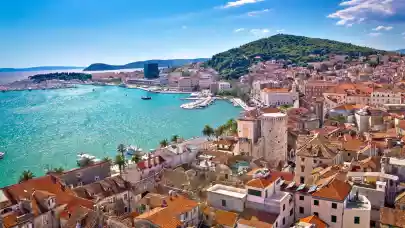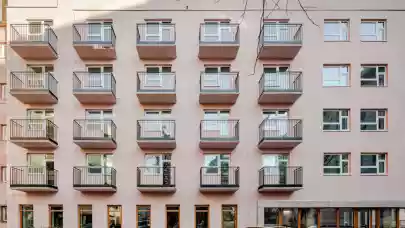
2022 saw an almost complete recovery of Croatia’s tourism industry with only 2% fewer overnight stays than in 2019. Hotels were almost at full capacity (98% open). In the summer season, hotels achieved 5% higher revenues than in 2019, primarily through an increase in occupancy of 25% (to 79%) compared to the 2021 season, which means a 9% gap compared to the occupancy of 2019, CBS International, part of Cushman & Wakefield Group reports..
During the first nine months of 2022, the income generated from foreign tourists was approx. at the level of €11.6 billion. An estimation for the whole year is that the total revenue from tourism in 2022 will reach €13 billion.
In 2022, for the first time, the number of beds in hotel accommodations has increased compared to the number of beds in private accommodations. This is a positive result of the overall national strategy that includes a plan for further tourism development. Namely, the prime focus is on upgrading existing hotel properties and developing new upper-scale and luxury greenfield investments.
With this positive trend, annual growth in total hotel accommodation units is expected to be on a level between 1.5 – 2.0% for the period of the next 2 to 3 years. Approximately 50% of the total new supply relates to the premium segment.
Private accommodation units with a share of almost 51% (611,525 beds) as compared to hotel accommodation with a share of 15% (179,545 beds) still prevail in the total supply of accommodation units in Croatia. It is expected that the total share of private accommodation units will record a slight decrease as compared to the previous period.
Based on the current hotel structure, 3-star and 4-star hotels still dominate, but with a trend of new investments and reconstruction of older hotel properties, it is expected that this structure will be changed in the following 5 years.
Transactions
The hotel market is limited in numbers, as shown by the low volume of transactions. Most 2022 transactions include properties requiring further investment and market repositioning.
One of the significant transactions is the sale of the Jadran Hoteli portfolio in Rijeka to Brown Hotel Group. This deal includes more than 1,200 beds in 5 hotels in Rijeka, 1 apartment complex and 1 campsite. It is expected that this will bring the necessary investments into a full reconstruction and market repositioning.
The largest single transaction relates to the sale of a newly built 230 keys Grand Hotel View on Brac Island. Both, the seller and the buyer are Croatian companies – Adria Coast Turizam and Jadran Crikvenica.
Openings
There were some significant new openings in 2022. In most cases, these are converted old hotels. These are hotels of a higher category (upscale and premium), and most of them are located on the Adriatic coast. Luxury rooms, outdoor swimming pools, wellness and spa centres and top restaurants and bars are just some of the features of the new hotel properties.
In addition to modernization and category expansion, branding by large domestic hotel companies as well as the arrival of international hotel brands is noticeable. In addition to individual projects, large hotel companies have restarted the cycle of investments encouraged by the good results of the tourist season. However, some investments have slowed down due to uncertainties related to increased financing costs, energy prices and labour costs. There are more than 2,500 keys in the pipeline mostly in the upscale categories.
Transactions
The capital market changes that occurred during the latter half of 2022 are still affecting the market. Interest rates are still high, and mortgage capital is less available than it was in early 2022 due to stricter underwriting standards, such as lower loan-to-value ratios. These conditions have directly impacted the transaction market, which slowed significantly in 2nd half of 2022, with some deals being re-negotiated or abandoned due to rising capital costs.
Additionally, there is a disconnect between buyer and seller expectations, as sellers are still influenced by the strong metrics of the first half of 2022, while buyers are facing the harsher realities of the current debt market. However, there is still a strong demand for high-quality deals, and hotels continue to be a popular investment asset class in the current inflationary environment.
As challenges in 2023, we can also mention the uncertainty of rent for tourist land, which should be regulated by new regulation, then in connection with maritime rights, i.e. beach concessions, and further uncertainty in connection with the price of energy after March 31.
On the other hand, it is expected that Croatia's entry into a Schengen area and the introduction of the euro as the official national currency will positively affect the investments, as well as the growing tourist demand from



